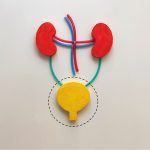-
Forward Look
Non-surgical Options in Bladder CancerSome people with muscle-invasive cancer can forgo bladder removal surgery.
by Darcy Lewis
-
From the Editor-in-Chief
Early-onset Colorectal Cancer on the RiseResearchers search for reasons for the growing number of cases in people under 50.
by William G. Nelson, MD, PhD
-
Empowering Pediatric Cancer Patients
After twice being treated for leukemia as a child, Brady Lucas discusses the mental impact of pediatric cancer.
by Suzanne McBride
-
Light at the End of the Tunnel for ASPS Patients
Immunotherapy has helped some young people with alveolar soft part sarcoma (ASPS), a rare cancer, but there’s more work to be done.
by Kyle Bagenstose
-
CAR T-cell Therapy: Understanding the Warning and the Risks
The FDA requires a warning with CAR T-cell therapies about an increased risk of cancer from the treatment. Should you be concerned?
by Sandra Gordon
-
Overcoming Lung Cancer Stigma With Understanding
Shirley Muñoz wants to use her experience as a younger lung cancer patient to break down barriers to care for her community through translation and advocacy.
by Cameron Walker
-
Real-world Outcomes in Multiple Myeloma
Study shines a light on the differences in outcomes between clinical trial patients with multiple myeloma and those receiving cancer treatment in their community.
by Sandra Gordon
-
Some Breast Cancer Patients May Safely Skip Radiation
Three presentations at SABCS in December find that it may be safe in certain cases for people with breast cancer to go without radiation.
by Cancer Research Catalyst
-
Emerging Treatments for Brain Metastases in Breast Cancer
SABCS panel describes advances and pivotal questions in managing patients whose breast cancer has metastasized to their brain.
by Marci A. Landsmann
-
Forward Look
CDK4/6 Inhibitors in Early-stage Breast CancerA mainstay of treatment for metastatic breast cancer, CDK4/6 inhibitors are moving into early-stage treatment.
by Darcy Lewis
Cancer Talk
Lessons From 20 Years Living With Cancer
Multiple myeloma survivor Jonathan Gluck reflects on uncertainty, and the scientific progress that has kept him living with cancer for more than two decades.
by Eric Fitzsimmons
The Enduring Importance of Cancer Disparities ResearchOpening session from AACR conference highlights how perseverance and adversity have informed cancer disparities research over the years.
by Eric Fitzsimmons
Most Cancer Survivors Don’t Meet Healthy Diet GoalsDespite research linking fruits and vegetables to cancer survival, many people do not change their eating habits after diagnosis.
by Darlene Dobkowski
Many People Don’t Get Colonoscopy After Receiving Abnormal Blood TestsAbout half of people who receive abnormal results from colorectal cancer screening tests don’t follow up with a colonoscopy.
by Laura Gesualdi Gilmore















